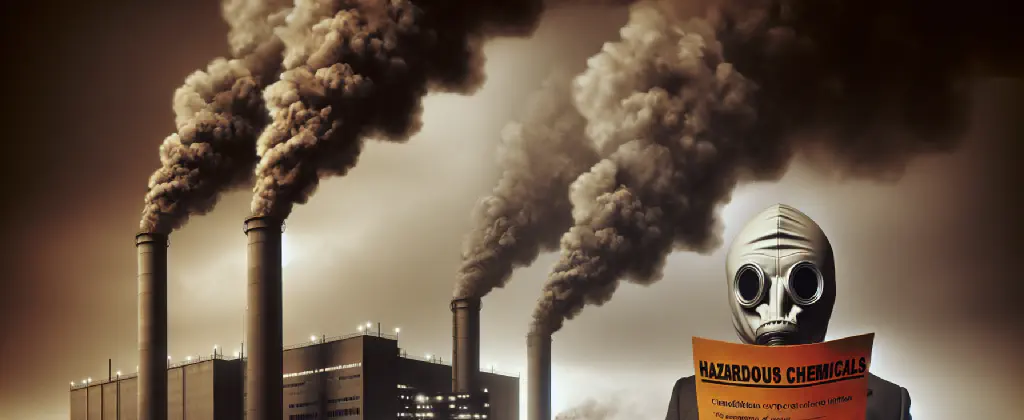18. December 2023
3M knew its chemicals were harmful decades ago, but didn't tell the public

Introduction
3M, the multinational conglomerate, has come under scrutiny for withholding information about the harmful effects of its chemicals. Decades ago, the company knew that certain chemicals, such as per- and polyfluoroalkyl substances (PFAS), were harmful but chose not to disclose this information to the public. This article examines the implications of 3M’s actions, the consequences of self-regulation in the chemical industry, and the need for stronger corporate accountability.
The Problem of Self-Regulation
One of the core issues contributing to 3M’s lack of transparency is the system of self-regulation within the chemical industry. The Environmental Protection Agency’s (EPA) rules allow chemical companies to essentially police themselves, which can lead to a lack of accountability. Instead of prioritizing public safety, companies may prioritize their own financial gain, potentially endangering public health and the environment.
The Role of Corporate Responsibility
While regulations and oversight play a crucial role in ensuring public safety, corporate responsibility and ethical conduct are equally important. Companies have a moral obligation to prioritize public health and environmental well-being over their profits. In the case of 3M, their knowledge of the harmful effects of PFAS chemicals raises questions about their ethical responsibilities and the consequences of their actions.
The Alarming Impact of Harmful Chemicals
PFAS chemicals, such as perfluorooctanoic acid (PFOA), have been found in various locations around the world, including rainwater and the Arctic. These chemicals can accumulate and persist in the environment, posing long-term risks to human health. Studies have linked PFAS exposure to a range of health problems, raising concerns about the potential harm caused by 3M’s withholding of information.
The Influence of Politics and Denialism
The politicization of scientific research and the denial of climate change have created a challenging environment for addressing public health and environmental issues. In the case of 3M, the ability to address the harmful effects of chemicals in a proactive manner was hindered by an anti-science political movement. The convergence of vested interests and scientific denialism poses significant challenges to implementing effective regulation and accountability measures.
The Need for Stronger Penalties
To ensure corporate accountability, stronger penalties and consequences for misconduct are necessary. Merely imposing fines is insufficient, as it allows wealthy corporations to continue their harmful practices without significant deterrents. Some propose the concept of “corporate capital punishment,” where companies found in violation face severe penalties such as seizure of assets and public domain release of patents and copyrights. Additionally, individuals responsible for misconduct should face criminal prosecution and personal liability for damages.
Moving Towards Effective Regulation
The current regulatory landscape requires significant improvements to better protect public health and the environment. Implementing stricter regulations, increasing the resources available to regulatory agencies, and holding individuals accountable for misconduct are essential steps. Additionally, considering innovative approaches such as Finland’s “day fines,” which scale fines with income/wealth, can ensure that penalties have a substantial impact on corporations and serve as a deterrent.
The Importance of Public Awareness
Raising public awareness about the consequences of corporate misconduct is crucial. The public should be informed about the potential risks associated with harmful chemicals and the importance of holding companies accountable. By understanding the implications of companies’ actions and advocating for stronger regulation, individuals can contribute to a healthier and more sustainable world.
Conclusion
The case of 3M withholding information about the harmful effects of its chemicals highlights the need for improved regulation and corporate accountability. Environmental and public health should always take precedence over financial gain. By implementing stricter regulations, imposing severe penalties, and promoting public awareness, we can work towards a future where companies prioritize the well-being of individuals and the planet.